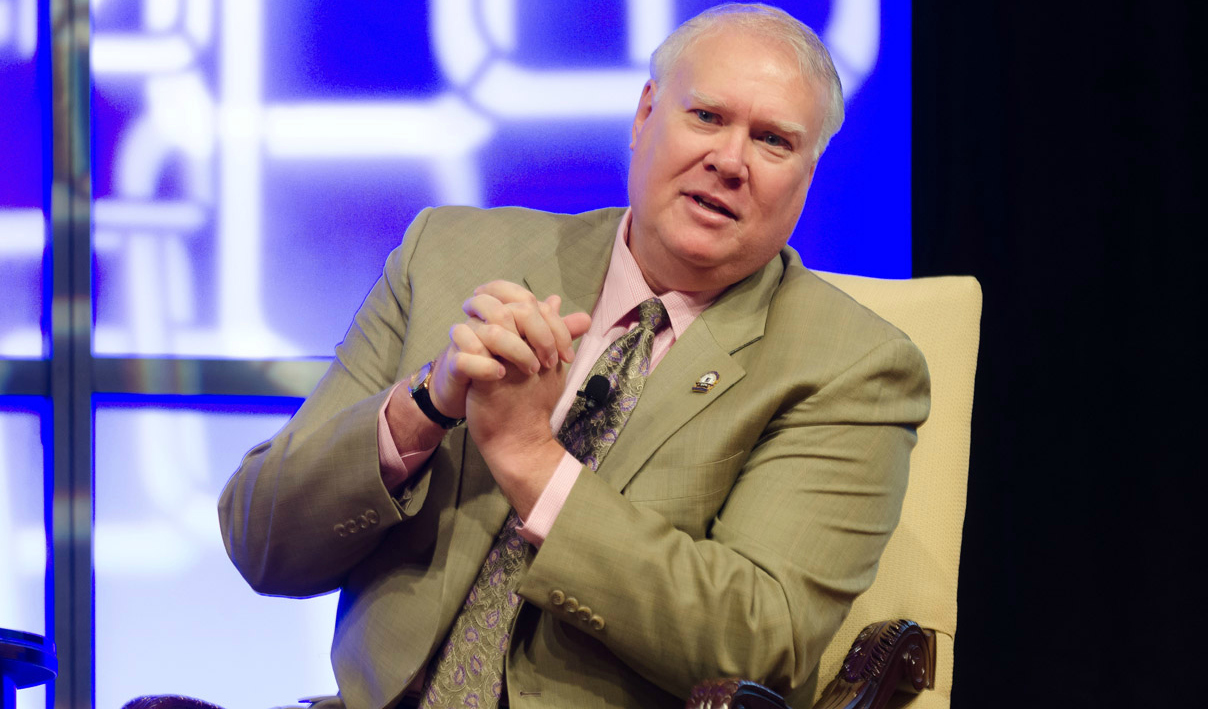 Over the past seven years, we’ve watched our nation become polarized on many political levels. Liberal or Conservative, we are a nation divided, and it appears that some in Real Estate have taken a strategy directly from the political playbook of a particular party.
Over the past seven years, we’ve watched our nation become polarized on many political levels. Liberal or Conservative, we are a nation divided, and it appears that some in Real Estate have taken a strategy directly from the political playbook of a particular party.
POLITICAL STRATEGY:
- Create a monster (the President)
- Find polarizing issue (beat the President over the head with it, repeatedly, true or not)
- Attack the monster with a revolution (attack everything the monster says or does, loudly)
- Create a perception of oppression (confuse the voter)
- Raise money (use every financial means necessary to multiply your message)
- Spin the media (a sympathetic media breeds sympathetic votes)
POLITICAL REAL ESTATE STRATEGY:
- Create a monster (the N.A.R.)
- Find polarizing issue (beat the NAR over the head with it, repeatedly, true or not)
- Attack the monster with a revolution (attack everything past or present, loudly)
- Create a perception of oppression (confuse the consumer)
- Raise money (use every financial means necessary to multiply your message)
- Spin the media (a sympathetic media breeds sympathetic consumers)
The idea is simple. You want to create one solid structure to attack, one that is tangible that will represent the larger group. Whether it is the Republican Party or The National Real Estate Industry, you must be able to lob verbal bricks at it to attract the attention of the five second sound bite. President Bush (agree with him or not) and The NAR are the ideal targets.
Warp the public trust of the monster by any means necessary by making sure as many voices are speaking so-called truth to power at one time. This will polarize some and galvanize others. In the case of the Real Estate Industry (the establishment), we’re talking about many who pay even less attention to RE than to politics, so it takes very little to plant the seed when an entity is attacking everything it does and stands for.
Whether you’re part of either political party matters not. The point is, the strategy is obvious and it works. The problem for those in Real Estate that choose to practice this stratagem is that they run the risk of alienating their own base over time. It is not a matter of if; it is more of a matter of when- if there is no simple logical answer to who is right and on what issue, then the argument is too broad and too vague. The audience tunes out and turns off, but the message is deep into the bloodstream.
When you attack an entire industry with doublespeak and double standards on every level at one time, you confuse consumers to the point that they will indeed take more time to sort it all out. Real Estate is a lot more complicated than the political Top 10 kitchen table issues- foolishly attacking anything and everything leaves no white or black area; you’re left with all gray, inevitably affecting the consumer confidence in every market. Markets that had no problem could suddenly perceive there is one.
My prediction if this strategy continues in its current clumsy state: the polarization of consumers could have devastating consequences for real estate markets and our overall economy. 
The main difference between marketing a new (or recycled) product or idea and politicizing it are very different. Marketing is very focused as a rule, it has a particular audience; politicizing is very broad, and uses a tone of “by any means necessary” with the voice of the oppressed (Not oppressed? Tell them they are until they believe it). Recent examples in the national media only spotlight what has been happening in smaller, more controlled markets for many months.
It is too soon to see the real effects of this style of Politicizing Real Estate, or if those who are guilty of said tactics will continue such a broad, dull, unfocused challenge of the Real Estate Industry. Even they must realize oversimplifying the nuances of real estate can and will have a negative economic impact on the larger segment of the market, including their own- and I do not mean in lower commissions.
It takes time for such a strategy to work or be measured; but the slow drumbeat of repetition will eventually win out. One must wonder whose drumbeat will be the loudest as the so-called revolution marches on… who will the consumer trust when the dust settles? Look no further than the public confidence of either political party on Capitol Hill for your answer.
….BR
Benn Rosales is the Founder and CEO of The American Genius (AG), national news network. Before AG, he founded one of the first digital media strategy firms in the nation has received the Statesman Texas Social Media Award and is an Inman Innovator Award winner. He has consulted for numerous startups (both early- and late-stage), and is well known for organizing the digital community through popular offline events. He does not venture into the spotlight often, rather he believes his biggest accomplishments are the talent he recruits and develops, so he gives all credit to those he's empowered.








































Jonathan Dalton
May 21, 2007 at 2:54 pm
Interesting theory. I’m not sure anyone needed to work hard to portray NAR as the monster. The group’s general approach to PR is a train wreck. That leaves a lot of agents attempting to defend the industry on their own when, frankly, not everything involved in the industry can be defended.
Redfin’s greatest appeal is it’s singular PR focus. What the company is doing is nothing particularly original – flat-rate real estate models have been in existence for years. But by adding the technology angle (also not a new idea to many), they’ve made it appear they’re looking for a revolution when instead they’re trying to exploit a particular consumer niche.
The new world of blogging, along with the cover of anonymity it provides, has allowed many to shoot at any sacred cow they choose without concern for the possible repercussions. And many choose to follow just to be heard. Sad, really.
B. R.
May 22, 2007 at 8:28 pm
All large entities have a big bullseye on their back, they are all clumsy, and slow. Thats how it works- thanks for the trackback and comment-BR